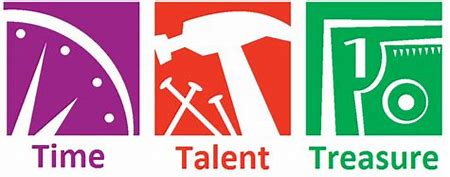Stewardship: A Vital Aspect of Discipleship
Since God gives and sustains life and everything is His (Psalm 24:1), you are simply His manager. Embracing stewardship in every area of your life is an ongoing process (I Corinthians 6:19, 20). Your responsibility is to develop the skills, discipline and knowledge required to manage the time, talents and treasures He has entrusted to you.
“Everyday is a gift from the Lord. I was raised in a Christian family; however, my father was reluctant on the subject of stewardship,” says retired businessman Comrie Lappin, 69. “When Eleanor and I married, we resolved to faithfully honor Him. As we raised our family, stewardship also meant having a time of worship at home with our children. Eleanor is now active in the women’s ministry at our church, and I have been teaching Sunday School since I was 16. There is no doubt in my mind the Lord has blessed us as we have steadfastly kept our commitment to honor Him with our time, talents and treasures.”
Time and Talents: Increasing demands at home, work and church can be overwhelming. One way of managing your time effectively is by clarifying how God wants you to use your talents. Through prayer, reflection and by creating a mission statement, you can gain a greater sense of how to fulfill your role in God’s plan. Peter Gamache, 49, an agrologist, agrees. “Striving to be good stewards is an imperative part of the Christian Life. It makes sense to embrace stewardship. We all have a part to play in God’s kingdom and stewardship is part of being a disciple and accepting Christ. I learned from my parents that I belong to Christ, that’s all of me, all aspects of my life. As a part of the body of Christ, we are to give ourselves to God, in His service,” he says.
Treasures or possessions are given by God. As you grow in your Christian walk, you develop a willingness to give from what He has given you. Biblical stewardship requires carefully considering how you earn a living, use credit and spend your income. There are two sources or “pockets” of income. One represents money from salaries and commissions. Out of this pocket you give tithes and offerings. “My parents believed in stewardship; however, for people that have not been brought up with it or are struggling financially, it can be difficult to implement. We cannot point fingers. Everyone has to work it out for themselves and do the best they can,” say Bjarne Myhre, a retired teacher who was born in 1930. “The Lord requires us to pay a tithe, normally 10 per cent. How I arrive at the amount is based upon a number of factors like income and expenses. For example, if I sell $10,000 of hay on my hobby farm and have $8,000 of expenses, I would give based upon the difference.”
Adds Jim Skinner, 43, a chartered accountant, “Initially, our income was limited, combined with the commitments of a growing family; however, we made a decision to tithe from a willing heart and then rely upon God to enable. As I get older, I have an increasing awareness that what I have is loaned to me for His purposes.”
The second pocket represents investments. Do you tithe from this second income as well (I Corinthians 16:2, Exodus 23:19)? In addition, there are Christian wills to further God’s work. These funds, directed to the BGC Stewardship Foundation, help to GLOBALLY plant and grow worshipping, caring churches. This is done to fulfill the Lord’s challenge of preaching Good News to all creation (Mark 16:15). The Foundation provides churches and districts with resources on stewardship. Some materials are now available, while others are currently being prepared. For more information, contact the Foundation or your pastor.



